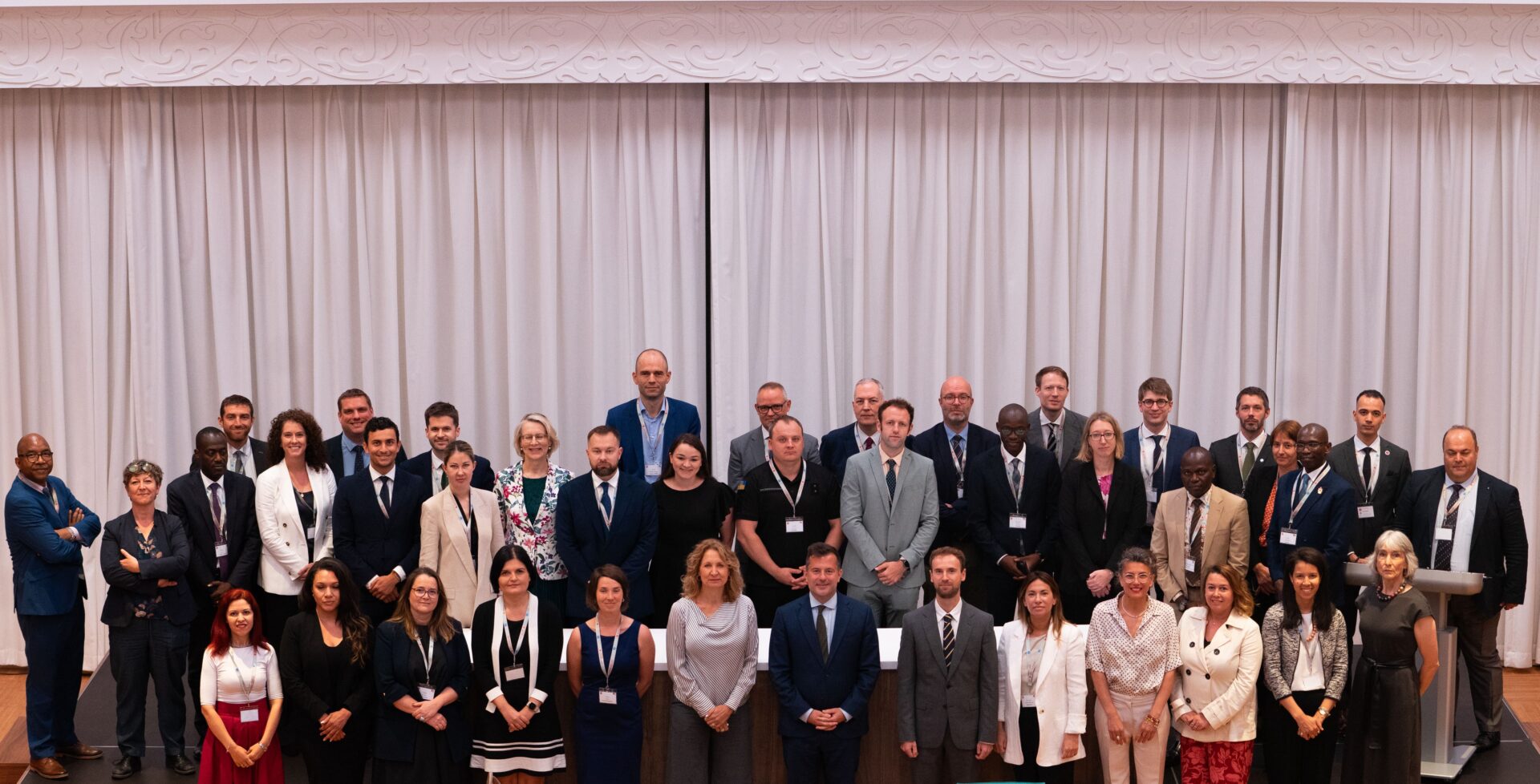
On 25-26 June, the IIJ was thrilled to hold our first-ever workshop in Malta on Sharing Information to Advance Accountability for International Crimes, convening 40 government policymakers, criminal justice practitioners, and representatives of international courts and investigative or fact-finding mechanisms to address a key challenge to prosecuting the most serious crimes in both international and domestic courts. The workshop took place with the generous support of the United States Department of State Bureau of Counterterrorism.
With this workshop, the IIJ filled a gap in the landscape of international cooperation for accountability, establishing a forum for expert policymakers and practitioners from governments and international courts and mechanisms to exchange their experiences in sharing information from sensitive sources. Such information can be a key tool in the investigation and prosecution of international crimes — including those committed by terrorist group members -- as reflected in the increasing number of cumulative prosecutions for both terrorism offenses and international crimes at national courts. The workshop’s focus on the value and complexities of sharing and using information for this purpose built on the IIJ’s Global Central Authorities Initiative, which supports international exchange of information in criminal cases, as well as its longstanding work to promote the sharing and use of Battlefield Evidence to counter terrorism through criminal justice systems.
The program’s scope was truly global, with participation from 17 governments — Argentina, Australia, Belgium, Bosnia and Herzegovina, the Central African Republic, France, Germany, Kenya, Kosovo, Malta, the Netherlands, Poland, Rwanda, Senegal, Ukraine, the United Kingdom, and the United States — and from the International Residual Mechanism for Criminal Tribunals, the Independent International Fact-Finding Mission on the Islamic Republic of Iran, the Independent International Fact-Finding Mission on Myanmar, the International, Impartial and Independent Mechanism – Syria, the Kosovo Specialist Prosecutor’s Office, the Special Criminal Court in the Central African Republic, the United Nations Investigative Team to Promote Accountability for Crimes Committed by Da’esh/ISIL, the Eurojust Genocide Network Secretariat, and Global Rights Compliance. Over the program’s two days, the participants examined existing legal frameworks for information sharing and detailed case studies from international as well as domestic courts, identifying common obstacles as well as concrete steps to make improvements.
This fall the IIJ will hold a West Africa Dialogue on Battlefield Evidence, which will incorporate key lessons learned from this week’s program. We also look forward to the presentation to the Council of Europe (COE) Committee of Ministers of the Comparative Practices on Use of Information Collected in Conflict Zones as Evidence in Criminal Proceedings, developed through the partnership between the IIJ and the COE Committee on Counter-Terrorism (CDCT) Secretariat.
